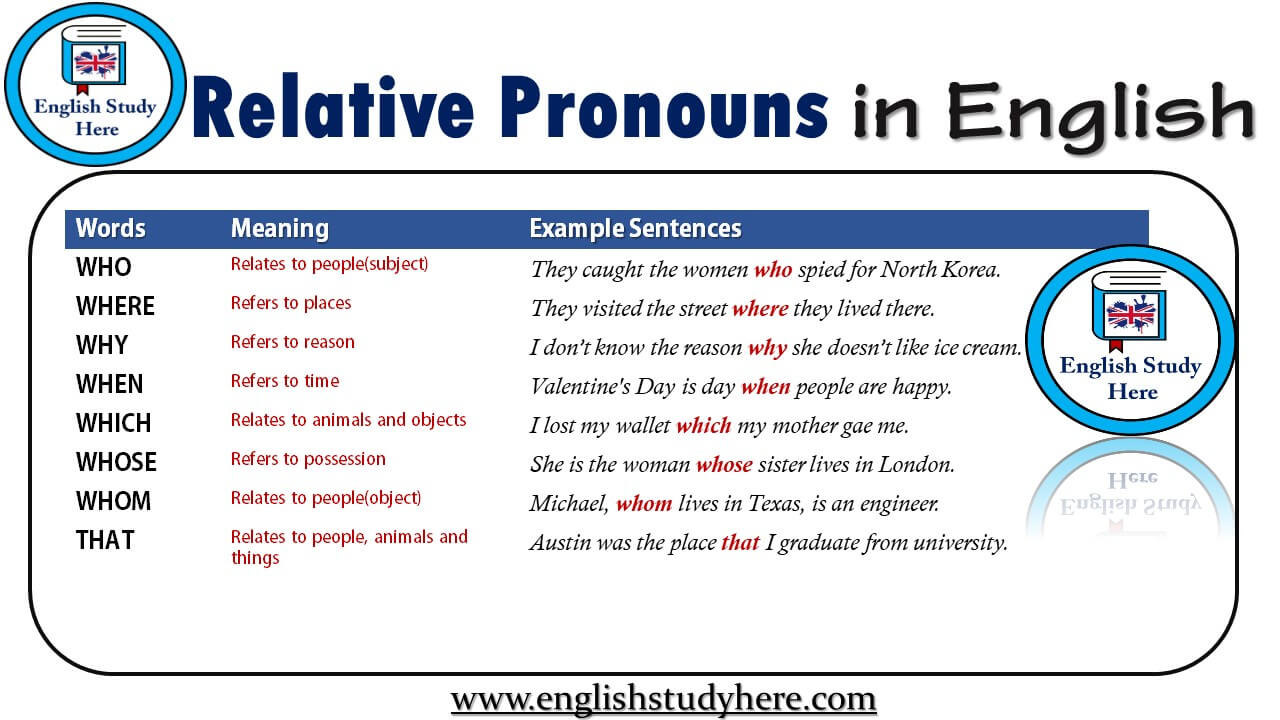

In the English language, the following are the most common relative pronouns: which, who, whose, whom, whoever, whomever, and that, though some linguists analyze that in relative clauses as a conjunction / complementizer.įor more information on the formation and uses of relative clauses-with and without relative pronouns-see Relative clause. For example, in the relative clause "which Jack built," "which" is a pronoun functioning as the object of the verb "built." A relative pronoun plays the role of a noun phrase within that clause.

An example is the word which in the sentence "This is the house which Jack built." Here the relative pronoun which introduces the relative clause, which modifies the noun house. Type of pronoun that marks a relative clauseĪ relative pronoun is a pronoun that marks a relative clause.


 0 kommentar(er)
0 kommentar(er)
